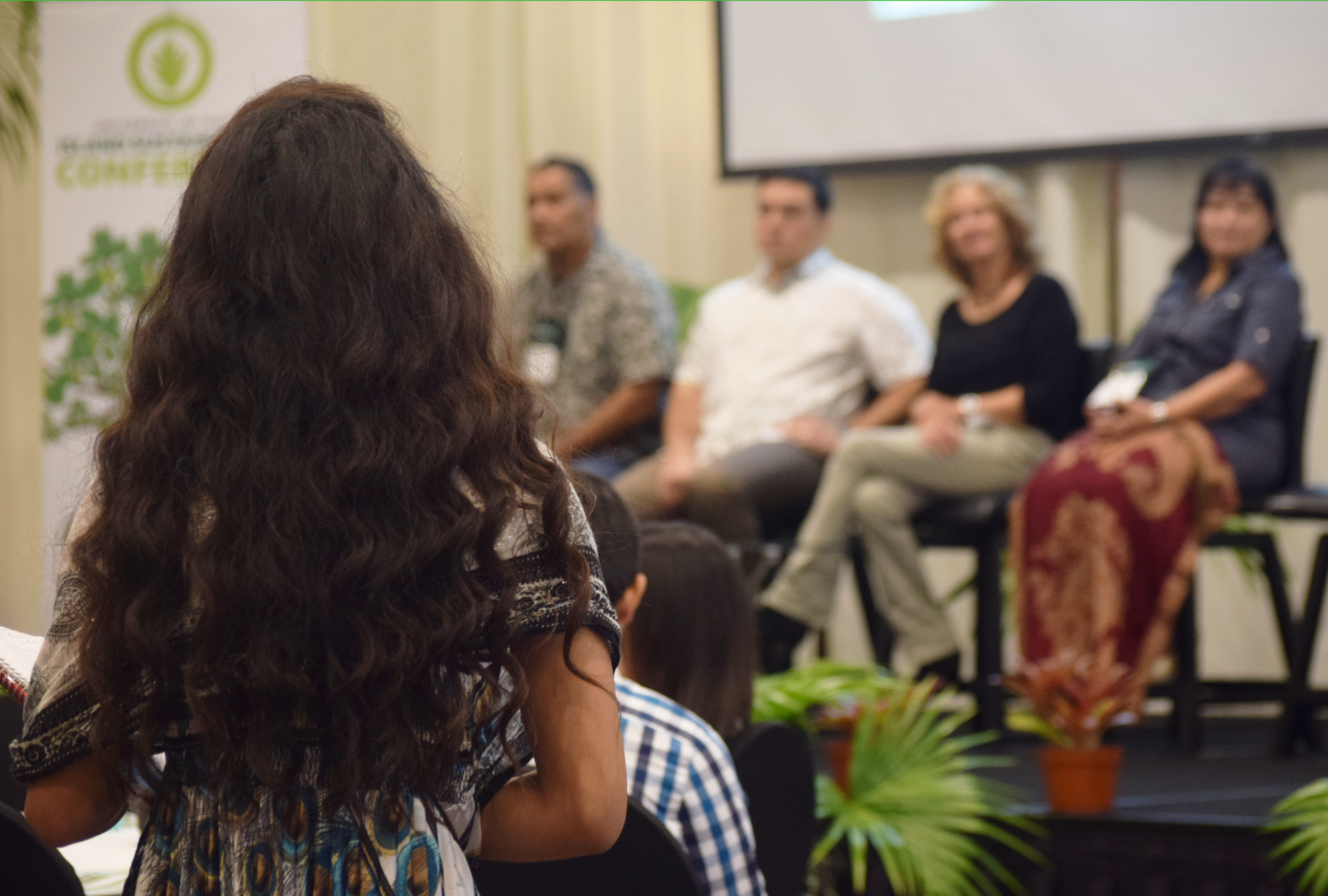The UOG Center for Island Sustainability (CIS) held its eighth annual Island Sustainability Conference from April 19 to 21 at the Hyatt Regency Hotel.
This year’s theme was “Cultivating Communities for Sustainable Action.”
The event featured over 70 presentations, which included breakout sessions and posters; seven plenary panels; a networking reception; and a conference watershed adventure at the Valley of the Latte.
The presentations and panels covered a wide range of topics, including energy, coral health, recycling, and conservation efforts.
During the plenary panels, crowd members were encouraged to ask the panelists questions or give comments concerning their area of expertise.
Questions about how to live sustainably, the status of certain research projects on the island, and climate change were asked.
Some of the crowd members even shared stories about their own personal ventures in using sustainable practices in their lives.
One local farmer in particular, humorously recounted how she sold onions back to Pay-Less when she learned that she could regrow them using their trimmings.
The event served as a platform for the island’s scientific community to share their findings with the public and encourage discourse about environmental problems and solutions.
“It’s really about providing a venue for discussion and talking about what our needs are in order to [build] a sustainable future,” said Philip Cruz, the sustainability coordinator of CIS.
According to Cruz, it was about making hard science more accessible.
For the researchers, the conference provided them an opportunity to network with each other bring their work into the public light.
“There is this sense of urgency in all the work that the participants do,” said Austin Shelton, PhD., the associate director of CIS. “We wanted to give them the tools to communicate that urgency to the public and hopefully inspire people to take action on these environmental and sustainability issues.”
According to Shelton, the conference was committed to operating sustainably.
There was not a single plastic bottle in sight.
The food served at the conference was sourced from local farmers. Over 300 pounds of farm-raised tilapia was prepared at the event instead of fish from ocean fisheries. Glass tanks of live tilapia were displayed on the buffet table.
No beef dish made it to the table due to the large ecological footprint associated with producing beef products and having them transported to the island.
It was the first time that the conference’s food was handled in this way.
And instead of giving away items such as plastic bottles away, attendants were given tree seedlings, flashlights, and produce.
Shelton was impressed about the conference as a whole.
“I think the event was a success overall. We had a wonderful turnout and a wide range of presentations,” said Shelton.
“I hope that it will make a difference as we go forward to [next year’s] conference and we hope that they take action on sustainability issues.”

